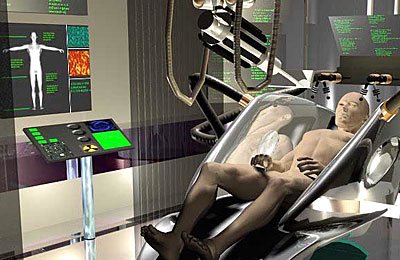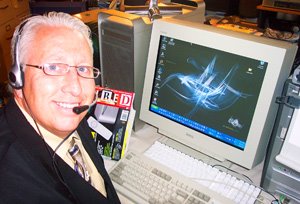Rejuvenation Therapy
NOBODY LIVES FOREVER - BUT we're about to get a whole lot closer, says Aubrey de Grey, a controversial age theorist and gene database manager at Cambridge University.

In February's issue of the international journal Gerontology, Grey argues that recent advances in our understanding of aging may allow today's sixtysomethings to reach their 1,000th birthday."The rejuvenation therapies we are on the verge of developing will actually repair cellular damage", says Grey. "We accumulate various types of indigestible junk in our cells, which leads to things like atherosclerosis (hardening of the arteries) and neurodegeneration. We can fix this by introducing enzymes from soil microbes than can break these things down."
For more information on anti-aging research, check out the Maximum Life Foundation, the Immortality Institute, and the Methusalah Foundation.
Note from DC: Can we really live to be 1,000? The beneficiaries of first-generation therapies will allow people to be in just as good health 30 years from now. By then, there will be more comprehensive therapies that will allow them to live until the next generation of therapies, that will allow them to live until the next, etc. Theoretically, people should then be able to live practically forever. The question is: Will they want to?




















